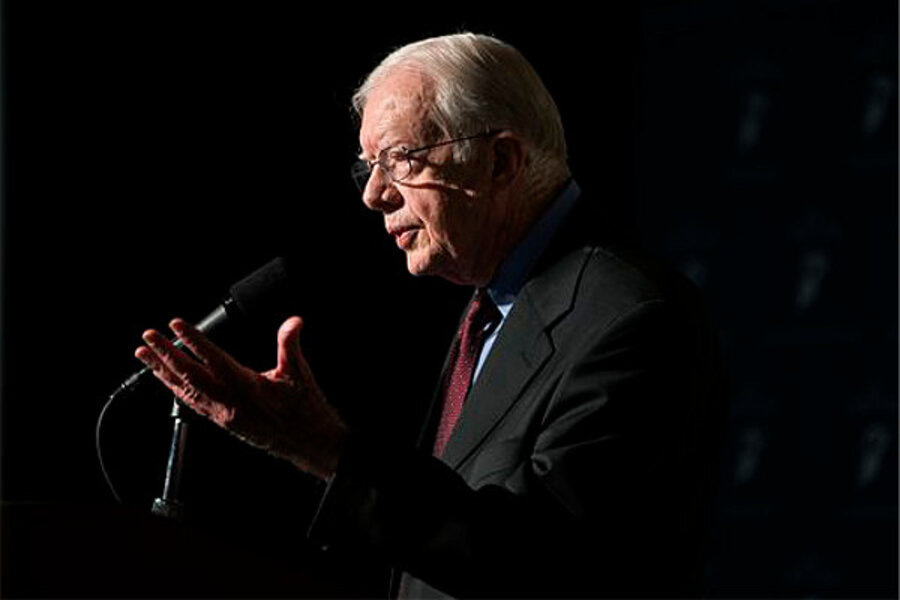Jimmy Carter: Unchecked campaign contributions are 'legal bribery'
Loading...
| ATLANTA
Former President Jimmy Carter said Wednesday that unchecked political contributions are "legal bribery of candidates" and denounced a U.S. Supreme Court ruling that made possible unlimited spending by outside groups, including corporations and labor unions.
"It's accepted fact," Carter said during a speech in Atlanta. "It's legal bribery of candidates. And that repayment may be in the form of an ambassadorship to someone who has raised three or four hundred thousand dollars to help a candidate get elected."
Carter spoke at a forum where an agency of the Organization for Security and Cooperation in Europe released its report on last year's U.S. election. The U.S. government invited the European agency to observe the process.
He said the U.S. Supreme Court made a "very stupid" decision by removing limits on independent campaign spending by businesses and labor unions, which the court found was a constitutionally protected form of political speech. The Democrat said that he and his Republican opponents used public financing to run their general election campaigns in 1976 and 1980.
Carter more generally criticized the amount of private contributions flowing into political campaigns.
"I would say that it's almost impossible for a candidate, like I was back in those early days or others even, to be considered seriously as a candidate to represent the Democratic or Republican parties as nominee if you can't raise $100 million or $200 million from contributors, many of whom know that they are making an investment in how they are going to be treated by the winner after the election is over," Carter said.
Carter said that while elections in the United States once set an example for the world, the country's reputation diminished in 2000 when the U.S. Supreme Court intervened in a Florida vote recount, effectively deciding the election in favor of Republican George W. Bush. He also criticized GOP-led state legislatures for changing polling hours in ways that Carter said were meant to frustrate likely Democratic voters.
The OSCE report found that:
— The 2012 election was administered professionally and the public generally viewed the outcome as legitimate;
— Voter identification rules vary across the states and have become politicized;
— Political spending by outside groups can be exempt from disclosure requirements, raising transparency concerns;
— Rules on vote recounts vary widely and are not always clearly defined, which could result in complaints.







